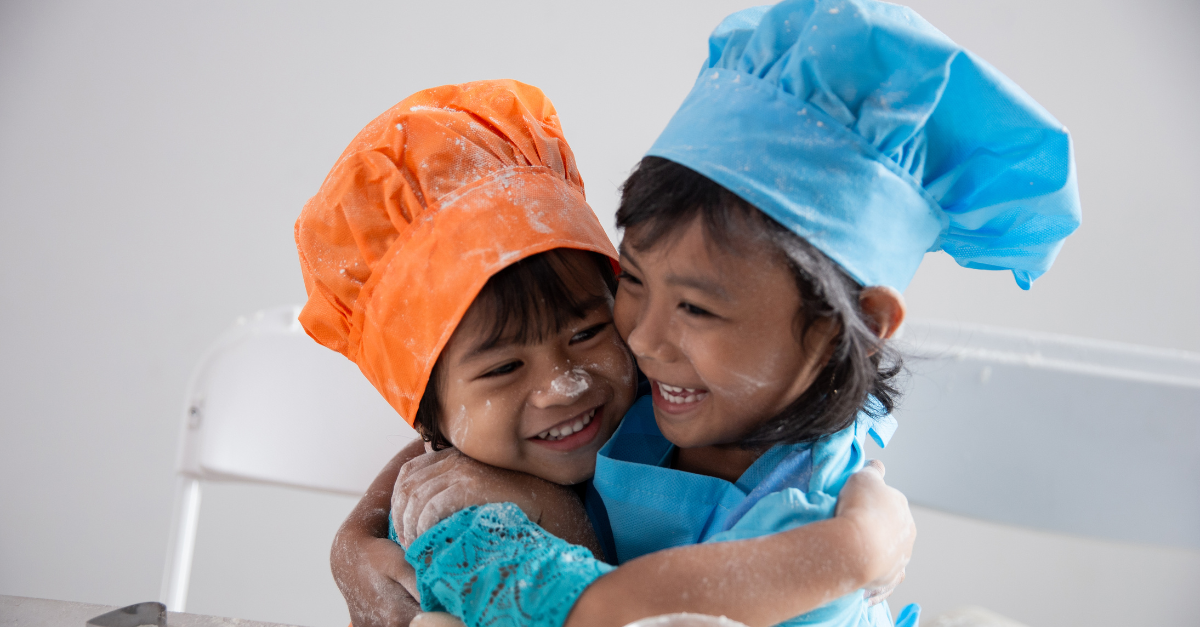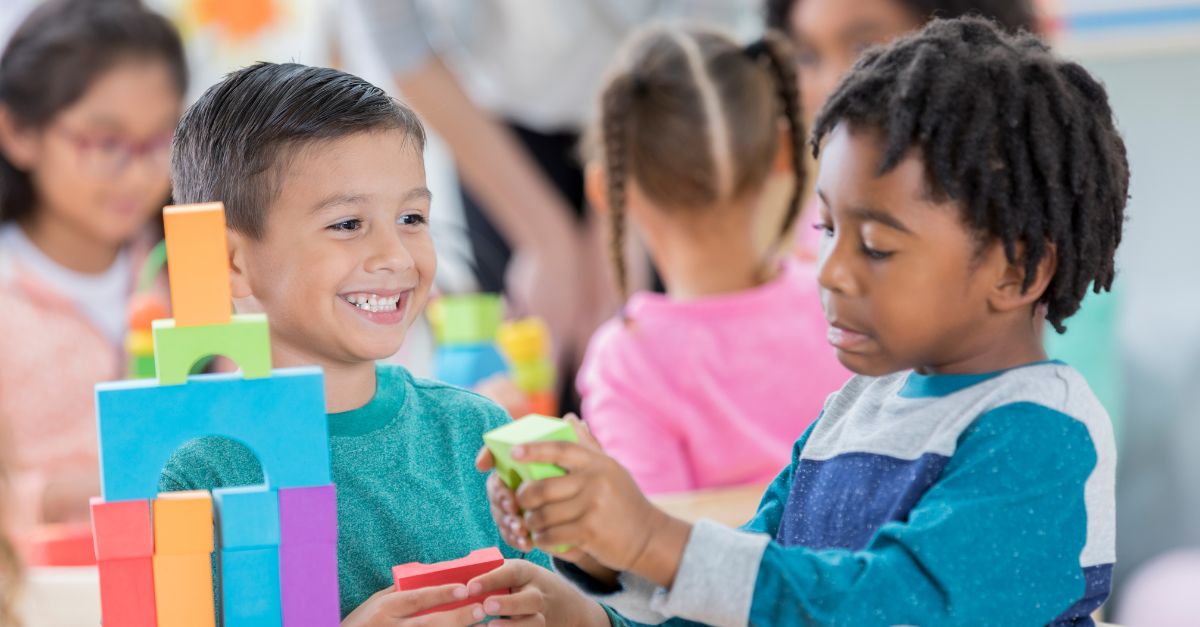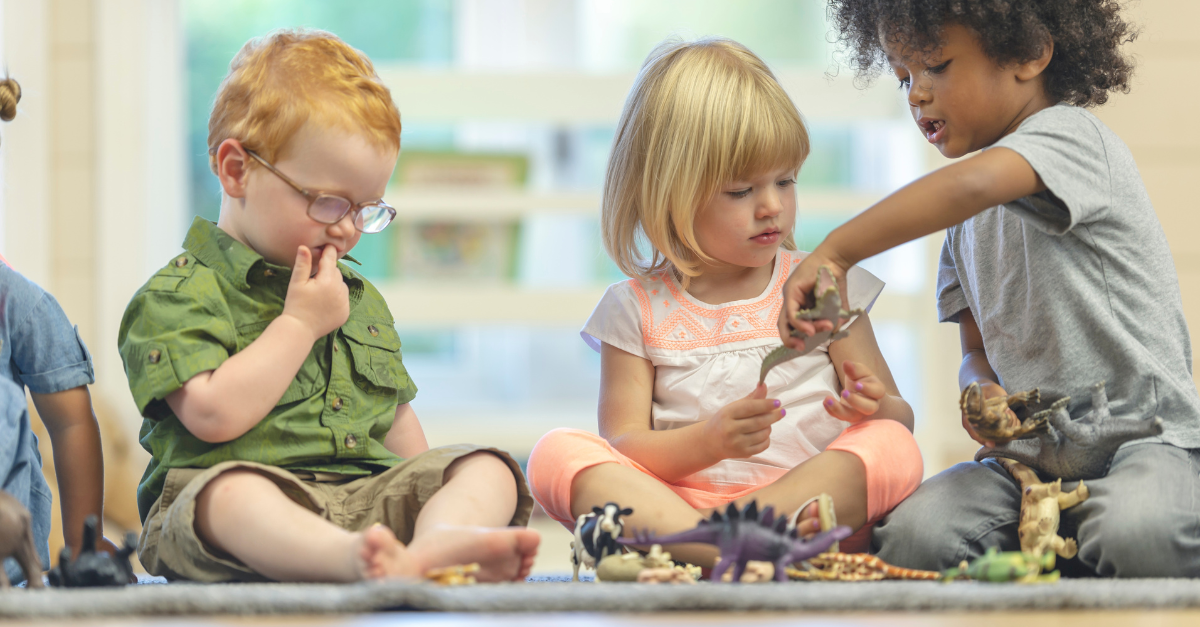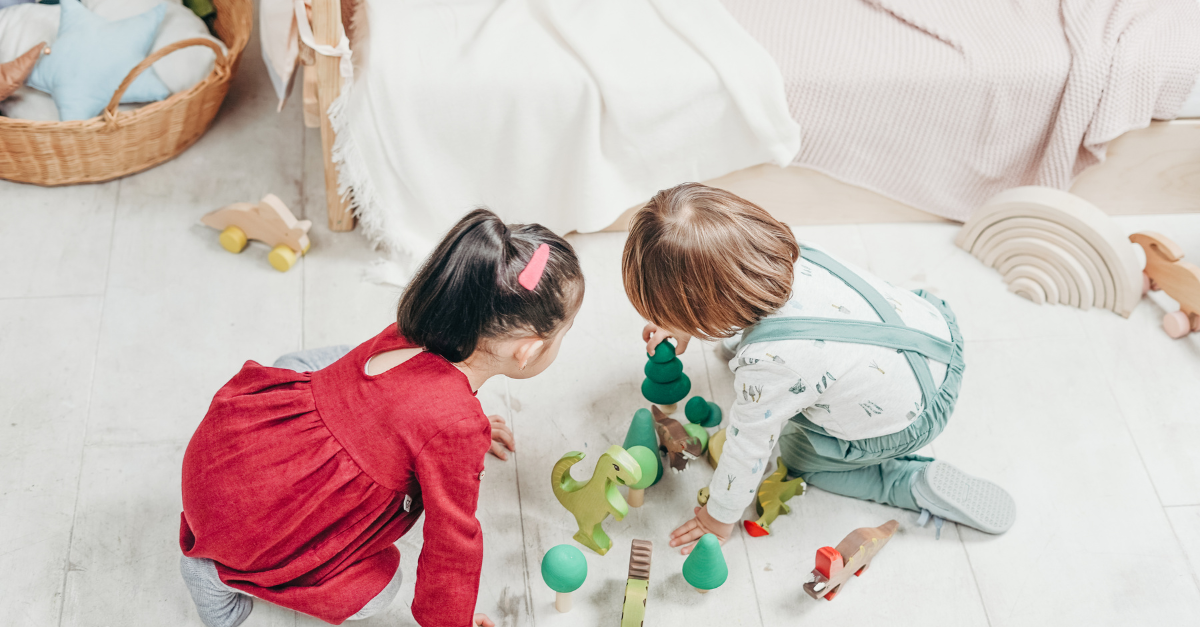Promoting kindness and empathy in early childhood
In today’s modern landscape of early childhood development, the importance of soft skills such as empathy and kindness are becoming even more critical. As society evolves, so do the complex social dynamics we live in, making empathy a cornerstone of emotional intelligence. Kindness, rooted in empathy, fosters inclusive communities where every child feels valued and accepted. By prioritizing these values in early childhood education, we equip children with the tools they need to thrive in a diverse and interconnected world.
Supporting children in building a strong emotional intelligence during their formative years is a key role for early childhood professionals. Children who develop a strong foundation in understanding and managing their emotions are better positioned to navigate challenges, build positive relationships, and contribute positively to their communities.

This blog dives into the educational philosophy of social-emotional learning objectives and the importance of fostering kindness and empathy during the formative years for child development. We will explore strategies for incorporating emotional intelligence skills into your own curriculum and the impact this has on the development of younger children.
Integrating kindness into your daycare curriculum
Purposeful Planning
Building a strong foundation for kindness begins with intentional planning in child care curriculum development. Infusing learning activities with themes that emphasize sharing, cooperation, and understanding. Not only should early learning activities focus on the development of these soft skills, but they should also promote an emotionally safe environment where children are allowed to feel and express their emotions. This is the number one way young children will start to understand their feelings and ultimately build empathy. Creating meaningful learning experiences where children learn that their emotions matter is a key first step.
Inclusive learning
As all early childhood experts know, creating a classroom curriculum that is welcoming for all children and families is critical. An inclusive childcare curriculum is a powerful tool for fostering empathy. Ensuring that educational materials, children’s books, and intentional lesson plans reflect diversity and create a space that is ready to accept everyone. By exposing children to different cultures, perspectives, and backgrounds, educators create an environment where kindness thrives through appreciation and understanding of differences.
Social-emotional earning (SEL)
Empathy and kindness are two skills within the broader landscape of social-emotional learning and emotional intelligence. Educators should be mindful of creating learning activities and engaging with young children in way that promotes relationship building through kindness, empathy, and a sense of self-awareness. Every activity, wether it is focused on cognitive, literacy or even physical developmental domains, is an opportunity to model kindness and create a learning experience that promotes empathy and understanding.

Implementing strategies in the classroom
Modeling empathy
Teachers serve as primary role models for young children. Demonstrating empathy in every interaction with children and colleagues creates for authentic and meaningful learning opportunities. When educators can model how to identify and express emotions in a healthy manner, it lays the groundwork for children to understand their unique needs and cultivate their own empathetic responses.
Cooperative activities
When developmentally appropriate, infuse the curriculum with cooperative activities that encourage teamwork and collaboration. Creating opportunities for young children to problem solve together not only fosters a sense of community within the classroom but also instils values of sharing and understanding that will extend beyond the immediate learning environment.
Conflict resolution skills
Teaching children age-appropriate conflict resolution skills and equipping them with effective communication tools empowers them to navigate social interactions with empathy. Ultimately contributing to a positive and supportive classroom atmosphere.

Creating a culture of kindness
Family involvement
Extend the cultivation of kindness beyond the childcare center by fostering strong partnerships with families. Taking the time to understand each family, and collaborating on strategies that promote the unique emotional needs of each child will support in the building of empathy between the home and school environment. Educator and family relationships are also another way to use organic learning experiences to model empathy, kindness and effective relationship building.
Recognition and celebration
Celebrate acts of kindness within the classroom. Show children that you see them and you appreciate the kindness they show to their friends. Expand their understanding by having conversations with them about how acts of kindness make them feel and how they might make their friends feel. When children feel seen and acknowledged for their actions, and when they develop and understanding behind the why, it will help them to feel encouraged in continuing to build these skills.

Professional development: The catalyst for change
Importance of ongoing learning
Acknowledging the pivotal role of professional development for child care providers and early childhood educators is essential. Continuous learning equips educators with updated tools and strategies to effectively nurture kindness and empathy in their classrooms. Research is constantly changing and so is society, meaning the needs of children and families entering childcare are constantly shifting. Teachers cannot provide high-quality care and support the development of 21st century skills, such as empathy and kindness, if they stay stagnant in what they know.
Self-paced and personalized professional development
Investing in training programs that allow educators to focus on the skills most important to them, and on the schedule that works best for them is fundamental to high-quality professional development. These programs provide educators with in-depth knowledge and practical skills, enabling them to create a supportive atmosphere where children feel valued and understood. Programs like Lillio Academy don’t assume that professional development is one size fits all. Lillio Academy allows educators to pick from a list of social-emotional courses, honing in on the area they are the most focused.
Collaborative learning communities
Encourage the formation of collaborative learning communities among educators. These communities provide a space for sharing experiences, discussing challenges, and collectively developing innovative strategies for promoting kindness and empathy.
In early childhood education, the journey towards fostering kindness and empathy is both a collective responsibility and an ongoing process. By intricately weaving these values into childcare curricula and investing in continuous professional development for child care providers and early childhood educators, we lay the foundation for a future generation that embodies compassion, understanding, and a genuine concern for others.
PSA! Interested in learning more about social-emotional learning? We excited to share that our partners Seed & Sew are hosting The Seed Teacher Summit from March 12th – March 14th, 2024! Don’t miss out on this free opportunity to learn from experts in the field and build the tools you need to navigate classroom challenges, foster emotional well-being and strengthen resilience in yourself and the children you care for.
To support your professional development you can also browse Lillio Academy, for certified training sessions across the North America.
Maddie is a Registered Early Childhood Educator with a Master's in Early Childhood Studies. Her specialty is in Children's Rights and she is currently a Content Strategist for HiMama!
More by Maddie
Maddie Hutchison
March 6th, 2024
8 mins
Related Articles

How to Celebrate Week of The Young Child at Your Center
April 2nd, 2025 | Maddie Hutchison


